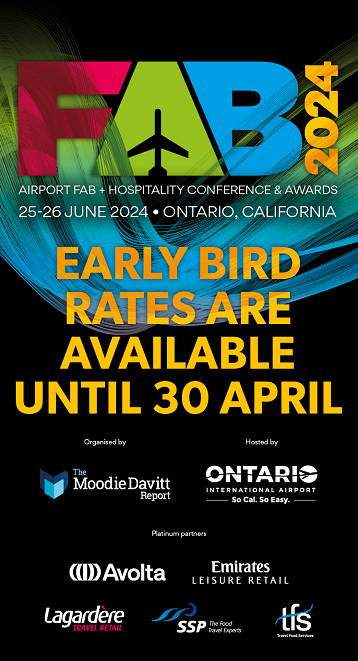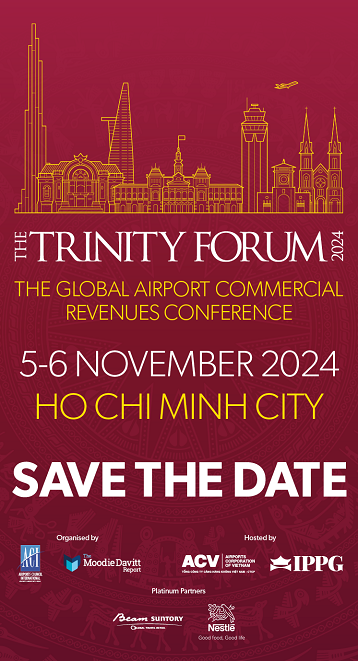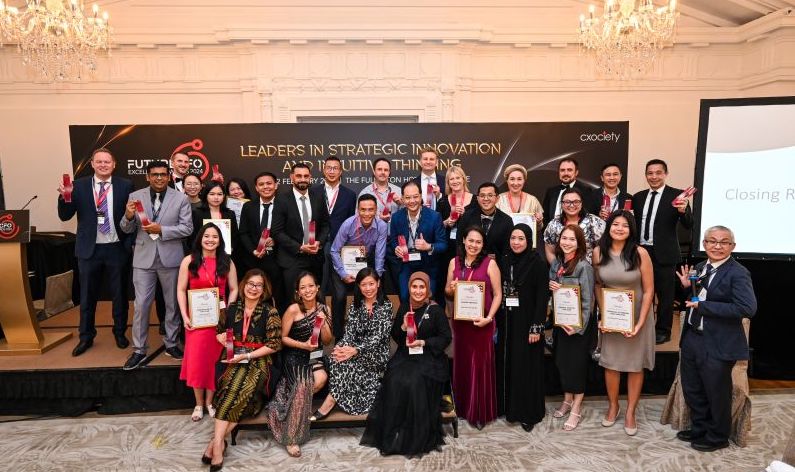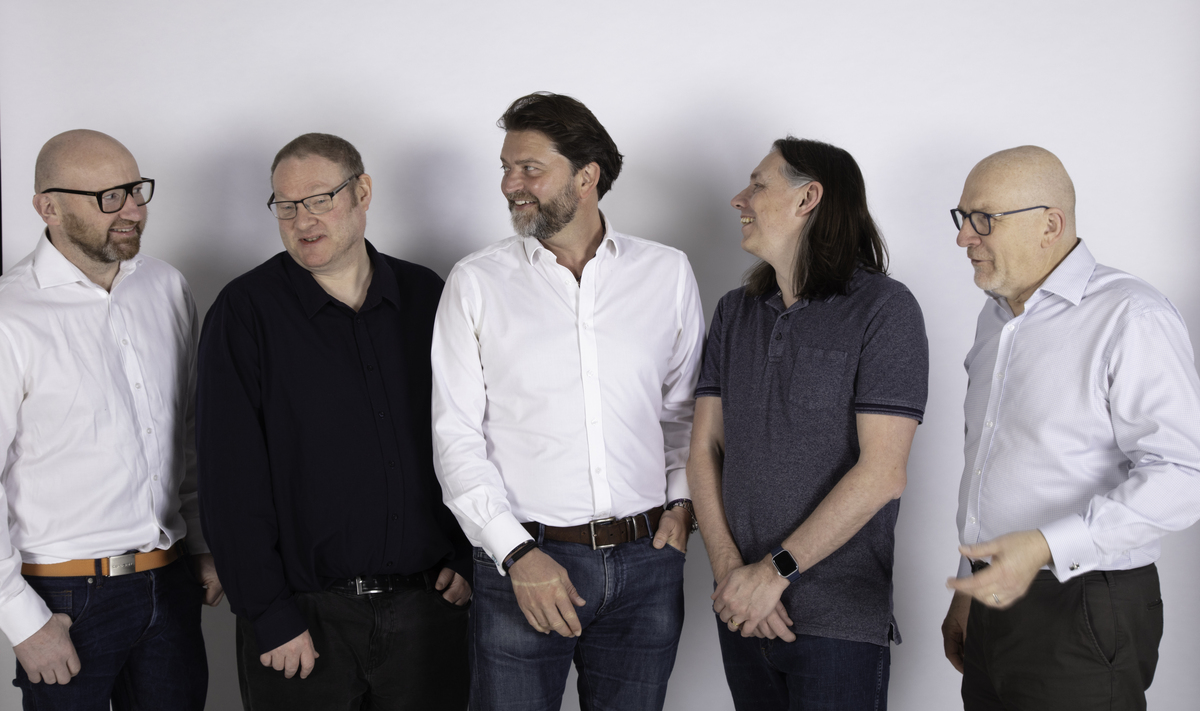Introduction: Leading digital travel retail solutions provider AOE yesterday announced the launch of Omnevo, a new company that aims to deliver fresh ancillary revenue models in food & beverage, retail and experiences for airlines, airports and rail operators. It was born from the recent merger of AOE with catering management and supply chain expert Shifteo.
What’s key to the Omnevo offer is its flexibility – no ‘one size fits all’ approach – and its commercial model which de-risks airline, airport or rail operator investment at a time when capex is in short supply yet the need for incremental revenues never higher.
As such, AOE contends, Omnevo is a genuine game changer compared to any other solution in the market. On the eve of this week’s announcement, Martin Moodie spoke to Omnevo CEO Michael Raasch and Kian Gould, CEO of AOE and Chairman of the Board of Omnevo, about the principles and pragmatics of the new entity.

The Moodie Davitt Report: Michael, let’s kick off with an overview of the new entity.
Michael Raasch: It’s very exciting. It’s a new brand where we have integrated two platforms in the product suite. As mentioned, we acquired Shifteo, which covers all the back-end supply chain and catering management field. And we’re combining that with a value proposition from AOE which provides everything in terms of ecommerce, front end and customer-centric omnichannel solutions.
So now imagine if you put these two things together into a platform which basically can fulfill all the ancillary revenue expectations and needs of airlines. It’s great. What is even better is that it’s a modular system so you can actually start very small, try out things, testing MVPs [Minimum Viable Product] and based on that you actually can grow.
I think that’s a huge advantage. Importantly, the business model we have designed behind it is really accommodated to the cost restraints of airlines, especially at a time when they cannot afford the capex to invest in solutions. So we have a revenue share model and a shared risk model which I think is much more in tune with our times. Whereas in the past, you’ve seen many airlines had a lot of money for technical or digital platforms but they didn’t have the ROI – we want to completely change that.
Tell us about the name Omnevo.
Omnevo comes from two words – from omnichannel and evolution and that’s exactly the DNA of our company because we see it as an evolutionary process. As I just said, we can start very small and evolve from there. You can start with food & beverage or you can start with preorder. You can start either with buy onboard or only with an EPOS system onboard. And you can start with ecommerce, by trying out different things on dedicated routes. So that’s the idea – you can start with something and evolve it because that’s the nature of the technology and the nature of omnichannel.
“The trolley is definitely dead with most of the airlines… we hear that from almost everybody, they don’t want to push a trolley down the aisle and carry a magazine” – Michael Raasch
And this is a whole new entity outside of AOE? How does that structure work?
Michael Raasch: Yes. We decided to create a different legal entity, a different unit, out of AOE. AOE has a long history, especially in the airport environment and also with its success story with Singapore Airlines. Our ambition and focus is the whole travel sector, so everything from airports and airlines to railways.
While AOE is the mother company, it’s still a tech company with 250-260 developers where we do coding and we do integration projects there. We have Omnevo on the one side, which is the product company, and AOE which is the project company. So if they are bigger integration projects, we use AOE. If they are products which we want to implement, we use Omnevo.
Clearly in this troubled aviation age, the need for airlines to generate ancillary revenues has not diminished, in fact it’s been accentuated. But because all airlines are under tremendous financial pressure, their ability to fund investment has been severely compromised. Is that your premise – that you’re not bringing a one-size fits all model but one where you can tailor the offer according to 1) the airline’s needs and 2) its financial situation?
Absolutely right, yes. So it’s basically a solution suite which is modular and one which you can start small with. And it’s a revenue-share model.
I know you’re in discussion with several parties which you can’t discuss but what’s been the overall response from the market?
Michael Raasch: Extremely positive. We are overwhelmed actually at the moment by the response rate from airlines. We have a lot of calls with different carriers all over the world. And it’s very positive because we are providing a solution to their pain points.
So we’re really asking, “What are the pain points in terms of what you want to do, how you want to design your business, and how you want to approach the passengers?” As you rightly said, airlines are under tremendous pressure to make [incremental] money next to the sale of tickets. And remember, the ticket prices will face severe competition when the market starts flying again.
So how are we going to do that? We see a lot of airlines thinking about different programmes, how they are going to implement ecommerce, and how they’ll try to sell ancillary revenues. The trolley is definitely dead with most of the airlines… we hear that from almost everybody, they don’t want to push a trolley down the aisle and carry a magazine.
They’re looking for alternative ways. Many of the airlines have an idea where to go but are looking for the solutions which can fulfill their needs and address their pain points. And that’s where we have a whole suite of products ready to go. The products are there. You can plug and play and our lead times are usually a couple of months to implementation.
Okay, so let’s say that I run Airline X Michael. I’m flying a combination of short haul and long haul. I’m coming through the toughest period in my airline’s history and I need to make some revenue from my passengers. There’s not many of them at the moment so my need for those incremental revenues is even greater. What’s your conversation with me in a nutshell?
Michael Raasch: So the answer is we basically have your solution. And I can tell you that very honestly because I’ve been on the airline side and I’ve been on the provider side. So we have a very good understanding of the needs and the requirements of airlines today. As you rightly said, a) you need to be flexible because you don’t know which kind of routes you’re opening up next month; b) you need to be flexible in terms of the offerings and your competitive landscape; and c) you need to be flexible in your commercial models. And we address all these three points.
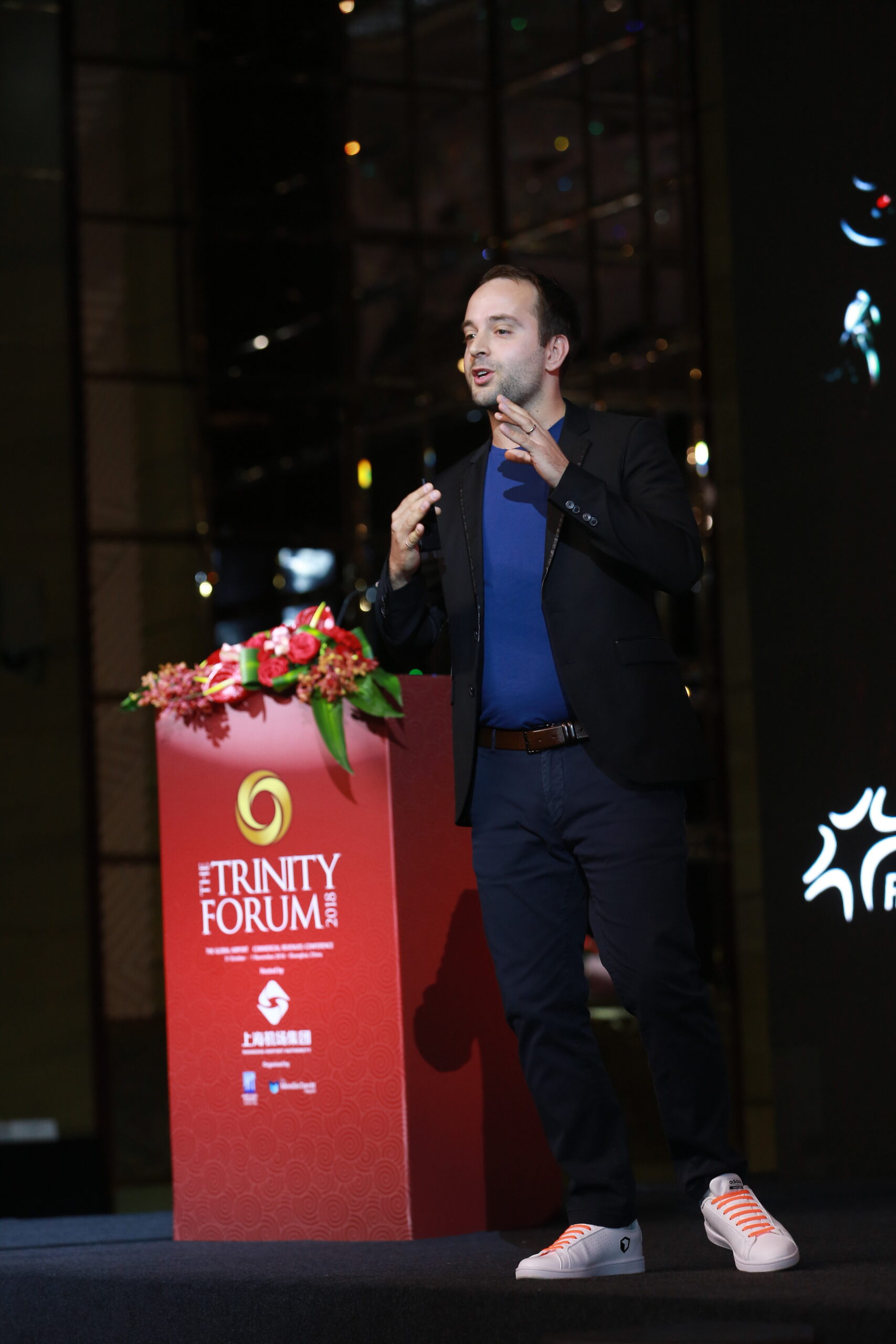
Let’s talk airports. Kian, is this the sea-change moment that we have talked about so much in the past? Bain & Company talk about this ‘forced acceleration’ of digital that’s happened worldwide during the pandemic. Sum up how you see it.
Kian Gould: There are a lot of aspects to this that make it very interesting for airports. In the past, we came in with a kind of total solution for airports. And that scared some off as it came with a hefty price tag.
The main thing that we have changed in our airport approach is that we’re doing it with a much more minimum viable product (MVP) approach. And we’re doing it based on a subscription and revenue-share model than a big capex approach.
We have changed and simplified the model and it’s picking up quite nicely. We’re getting a lot of RFPs from airports right now. On the airline side, we have a much more flexible and granular approach because airlines are all in very different situations. So, for example, we have the airlines that have already killed inflight retail anyway… they have this huge loyalty point ecosystem yet they have no way to spend these points right now.
These loyalty points are really depreciating in perceived value because such airlines don’t have a KrisShop [Singapore Airlines’ omnichannel retail offer -Ed]. So their consumers don’t have the ability to buy products with the loyalty points. All you can buy is upgrades, flights, hotels – nothing that you can use right now. And so, in terms of an entry possibility on the ecommerce side for an airline, that is a no-brainer in this current situation because you don’t need people to fly to buy. This is crucial because we have had talks with various airlines who have said, “We want to make money without people flying because we don’t know how many people will be flying. What can we do?”
“The main thing that we have changed in our airport approach is that we’re doing it with a much more minimum viable product (MVP) approach” – Kian Gould
But then, they say, there is another facet – how can we save costs, for example, on catering? There’s a lot of waste happening in catering because initially when COVID started they just stopped catering almost completely. And now they have limited catering. But most airlines are looking at how to relaunch catering with less waste.
So that drives us in the direction of pre-order. We’re currently in a project with an airline that is already doing 70 percent of their F&B through pre-order, which means they throw away 20 percent less of their food at the end of every trip. It’s a small solution with a big impact.
You have other areas such as inflight retailing, where airlines want to shift to ecommerce and pre-order and combine the models. That’s of course what we have seen with Singapore Airlines over the last years. We’ve gone from a model that was 90 percent inflight and 10 percent ecommerce to a model that is now 90 percent ecommerce and 10 percent inflight.
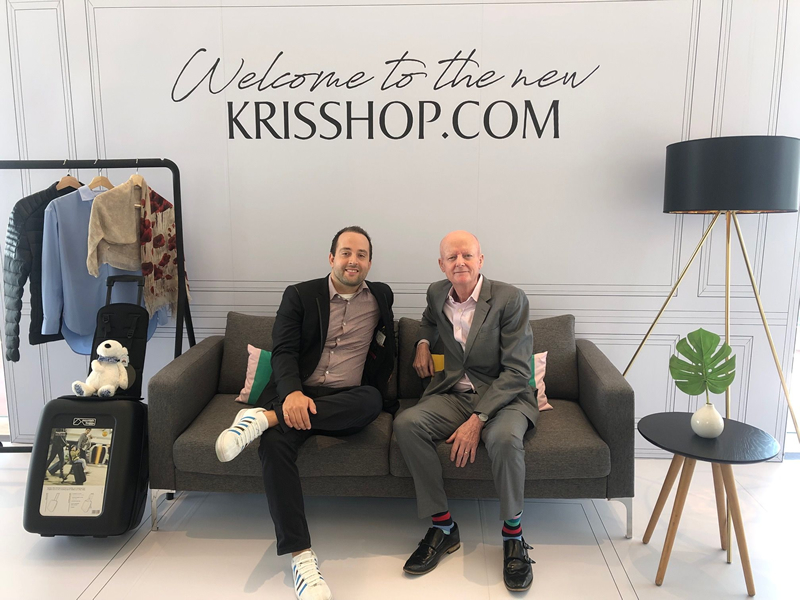
So a much more dynamic process is happening and no matter where an airline is we have a solution. I think that’s really the power of Omnevo. What we have gotten into our portfolio from the Shifteo acquisition is to be able to do the catering management, the inflight sales, the EPOS system and the supply chain for perishable goods. Those are things we didn’t have before and they combine perfectly with all of our duty free retailing, ecommerce and personalisation etc.
If one looks at Singapore Airlines, which AOE is so closely involved with, I cannot think of a company in our industry that has – to use that much overused word but here it is applicable – pivoted quite as well as they have. What they have done conceptually and their innovation around becoming a local market retailer but not just any local market retailer is impressive. Not only that, they nurture a strong sense of Singaporean place, a strong sense of innovation, and are constantly refreshing the offer through all their concept stores. It has been absolutely fantastic.

Kian Gould: Yes. And if you had told someone two years ago that an airline would make more money from duty free retailing than from flying passengers, they would have laughed at you!
Any other opportunities out there?
Michael Raasch: We are also active now in the railway industry, so that’s something Shifteo brought to us. Now imagine if you had an airline and you were constantly changing the crew and the food onboard – that is the complexity in railways. So there we are managing the supply chain, the crew management and so on. We’re having some good discussions with companies. We recently won a new customer where we are digitalising the workplaces of the crew so that they are getting real- time information on their handhelds and updated information about the food & beverage offering.
That’s an interesting field and we can learn a lot of different things from that industry. It’s interesting to see that all three segments – airlines, airports and train operators – have similar challenges and pain points and that’s what our solution can actually fulfill from one platform.
Kian Gould: We just won the inflight [onboard] solution contract for Eurostar, which is now an international carrier, so to speak, because they are moving people between the UK and Europe. Because of Brexit, this is now a duty free route. So there is new potential in all these areas.







